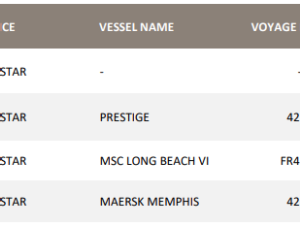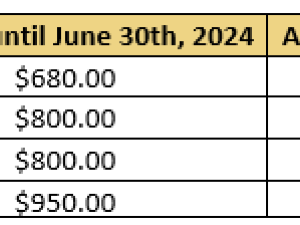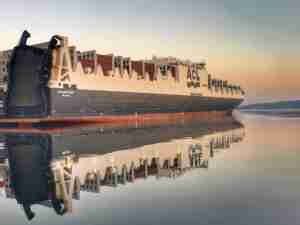Maersk, CMA CGM, Nippon Yusen Kaisha , and other top shipping companies have introduced either new African-bound trade routes or added ships to already established lines this year to take advantage of growth in the region.
"Africa is very, very strong, especially for commodities. We are seeing generally more cargoes moving on containers pretty much everywhere in Africa -- East Africa, South Africa and West Africa," Thomas Knudsen, the head of Maersk Line's Asia operations, told Reuters on the sidelines of an industry conference.
Busier sea traffic to Africa has helped offset slower business on other trade routes, such as the benchmark Asia to Europe lines, that have come under pressure from a glut of capacity and slower economic growth in the West.
No Slowdown in China
In China, Maersk's operations remained strong with no signs of softening freight demand despite Beijing's campaign to tighten credit availability.
"In terms of overall growth, we are not seeing any immediate signs of a slowdown (in China)," he said.
"What we have seen is business migrating from the southern part of China towards the east and north, so perhaps a little bit of change in sourcing patterns."
For Japan, container imports from Thailand and other Asian countries that supply industrial materials and parts to Japanese companies were starting to return to pre-earthquake levels, Knudsen said.
Maersk, whose fleet carries 15 percent of all seaborne containers and is seen as a barometer of global trade, has forecast total shipping demand this year to grow by between 6 and 8 percent, slowing from a 11 percent jump in 2010.
The slowdown in demand will exacerbate the industry's oversupply problem that has prevented shipping companies, many of which returned to profit last year, from charging higher freight rates.
Supply growth was expected to outpace demand by at least 2 percent this year with a flood of new, larger vessels, analysts said.
Maersk in February ordered 10 18,000 twenty-foot equivalent unit container ships at a cost of $1.9 billion, and was expected to exercise its option for another 10 this month. The vessels will be the world's largest container ships. (Reuters)










